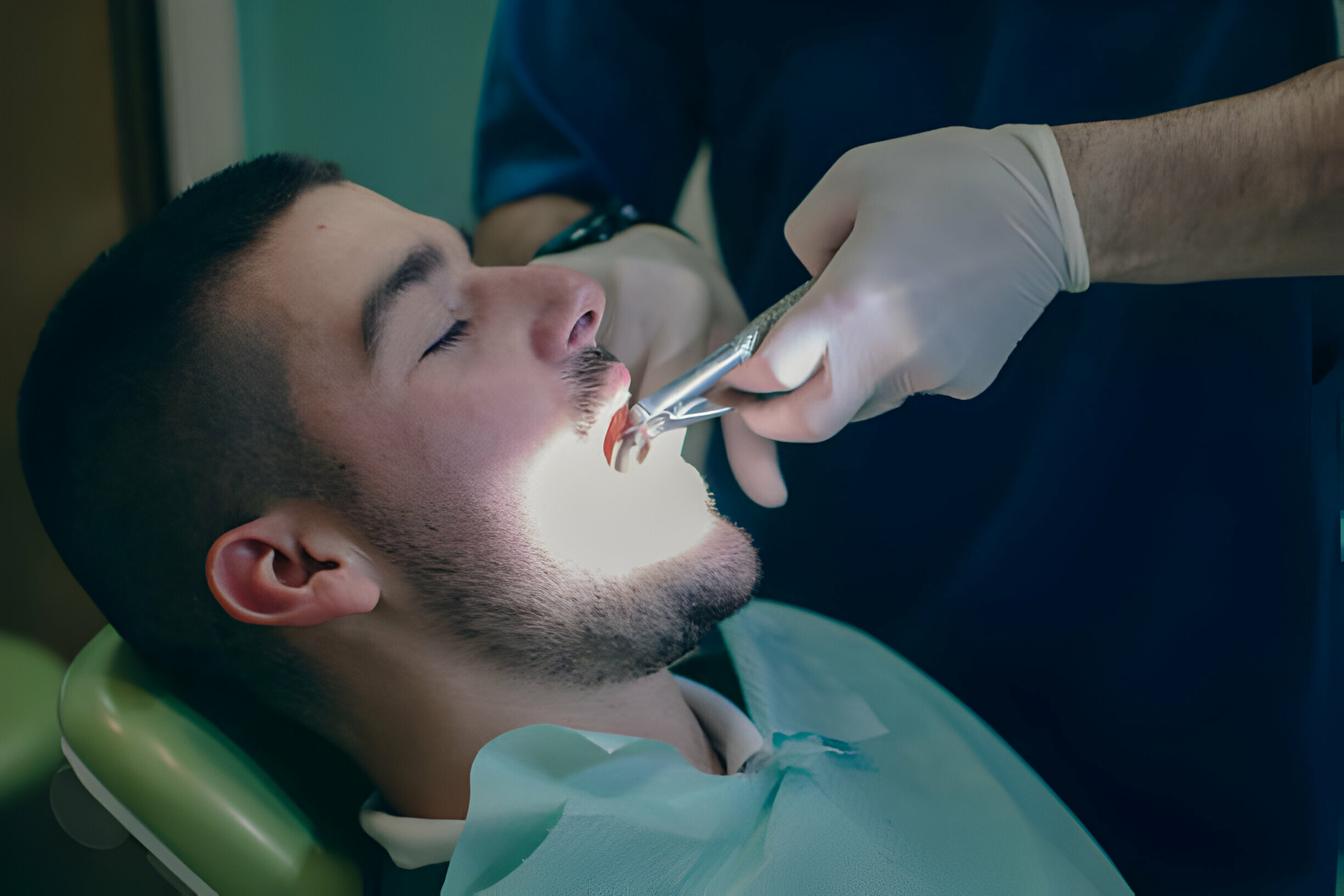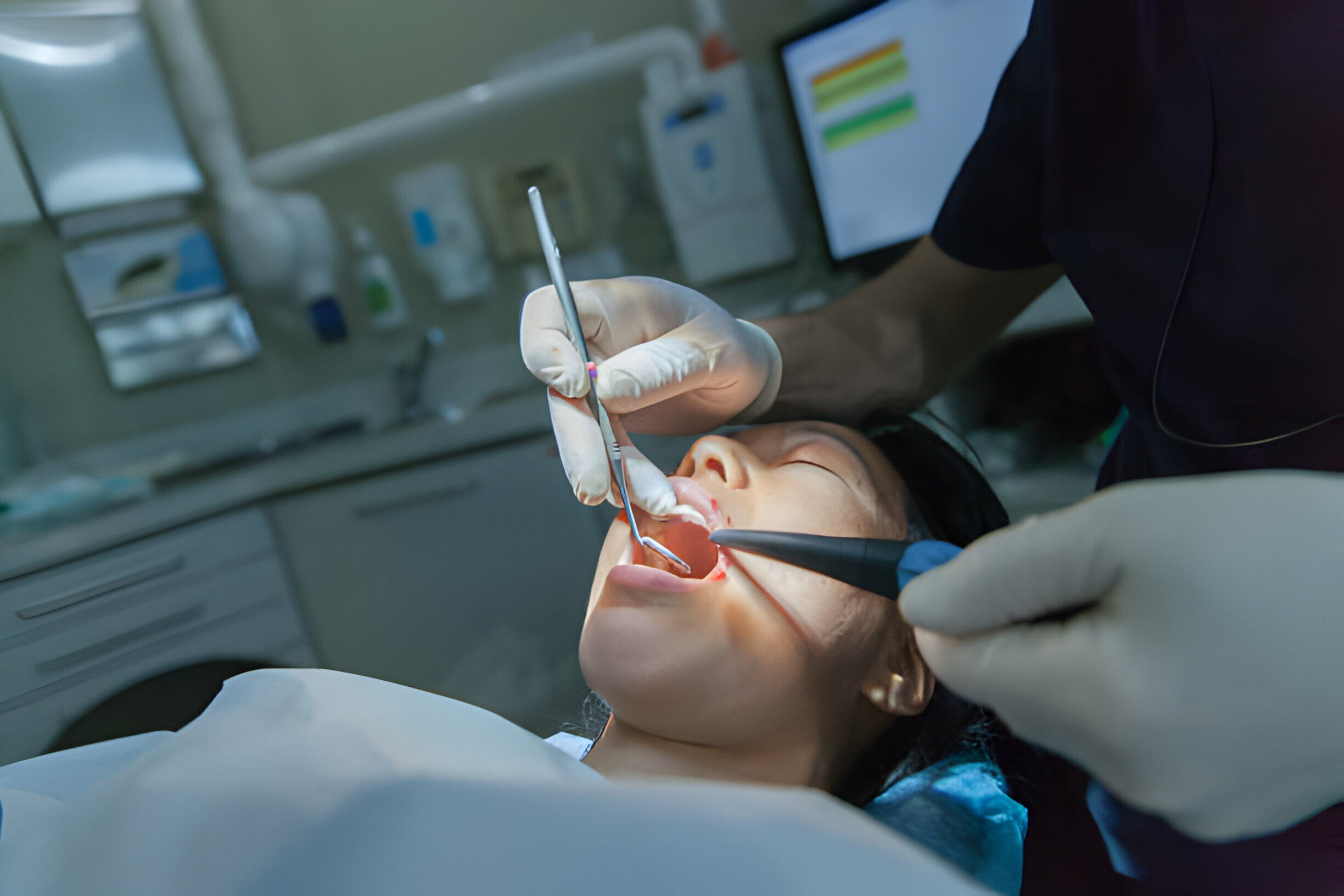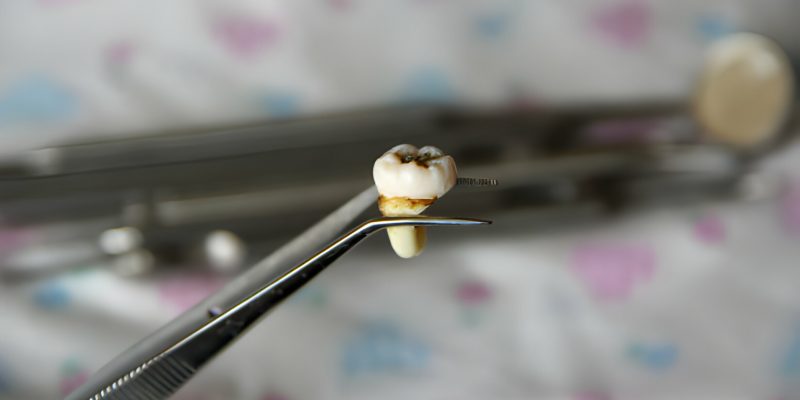Summary:
How often have you ignored the idea of tooth extraction just because it seems scary and extremely painful?
While dentists try to preserve your natural tooth by employing several procedures, sometimes tooth extraction at Dental San Antonio, TX, becomes unavoidable.

A tooth removal may seem like a nerve-wracking experience, especially if you don’t know what will happen during the procedure. However, we understand your fear.
Most people have the same fear, which needs to be overcome so that you can lead a healthy oral life. In this blog, we shall walk you through topics like:
- An Overview of Tooth Extraction
- Understanding the Tooth Extraction Procedure
- Exploring the Advantages of Tooth Extraction
- Who Should Avoid Undergoing Tooth Extractions?
Continue reading as we explore everything about tooth extraction in the following sections.
An Overview of Tooth Extraction
Regular oral hygiene is essential for optimal oral health; failing to do so may lead to dental problems and oral diseases. It may cause problems like toothache, cavities, tooth decay, gum diseases, etc., eventually leading to tooth extraction.
Sometimes, other problems like dental injuries, trauma, and certain medical conditions can also lead to tooth extraction. Dentists employ various treatment procedures to preserve your natural teeth; if that doesn’t suffice, they resort to tooth removal.
If your wisdom tooth is troubling you, you may also have to undergo tooth extraction. In 2020, around 74% of adults underwent tooth removal surgery.
The Role of Tooth Extraction – What’s it About?
Tooth extraction in San Antonio is a standard dental procedure to eliminate a damaged, decayed, or problematic tooth. Typically carried out under local anesthesia, dentists delicately loosen the tooth from its socket in the jawbone before extracting it.
Despite potential apprehensions, modern techniques and anesthesia ensure minimal discomfort throughout the procedure. Following extraction, patients may experience mild discomfort or swelling, usually manageable with over-the-counter pain medication.
Adhering to pulled tooth aftercare, including maintaining cleanliness and avoiding specific foods, promotes effective healing. Tooth removal is vital in restoring oral health and alleviating pain or discomfort.
Understanding the Tooth Extraction Procedure
Tooth extraction is a standard dental procedure performed by dentists or oral surgeons to remove a tooth from its socket in the jawbone. While having a tooth pulled might seem daunting, understanding the procedure can help alleviate anxiety and ensure a smoother experience.
Here’s a detailed look at what typically happens during your tooth removal with the best dentists in San Antonio:
Initial Assessment
Before proceeding with the removal, our dentist will comprehensively examine the affected tooth and surrounding oral structures. This evaluation often involves X-rays to assess the tooth’s position, root structure, and potential complications such as infection or impaction.
Based on these findings, your dentist will formulate a treatment plan tailored to your needs. This initial stage is followed by anesthesia administration in the next stages.
Anesthesia Administration
Local anesthesia is administered in this stage to numb the area around the tooth targeted for removal. While it is generally done to ensure your comfort throughout the procedure, anesthesia is especially important in some cases, especially if multiple teeth are removed or the tooth is impacted.
Your dentist may recommend additional sedation to help you relax and alleviate any anxiety. It can range from mild sedation, such as nitrous oxide (laughing gas), to deeper sedation administered intravenously.
Extraction Technique
Once the anesthesia has taken effect and you’re adequately numbed, our dentist will begin the removal process. They will carefully loosen the tooth from its socket in the jawbone and surrounding gum tissue using specialized instruments.
The technique employed may vary depending on the tooth’s location, condition, and impact (partially or fully embedded in the jawbone).

Removal of The Tooth
With the tooth sufficiently loosened, our dentist will gently and precisely remove it from its socket. In some cases, particularly with impacted teeth or complex root structures, the tooth may need to be sectioned into smaller pieces for easier removal.
This process ensures minimal trauma to the surrounding tissues and promotes a smoother recovery. Your dentist will then proceed with post-removal care.
Post-Extraction Care
After the removal, your dentist will provide detailed instructions on aftercare tooth extraction to promote optimal healing. It typically involves biting to contain bleeding, lying on a gauze pad, and using cold packs to minimize swelling. As needed, take prescribed pain medicines or over-the-counter painkillers.
Following these post-care tooth extraction tips will minimize discomfort and reduce the risk of complications such as infection or dry socket.
Exploring the Advantages of Tooth Extraction
The decision to undergo tooth extraction can be daunting, yet it often brings forth many benefits, safeguarding oral health and overall well-being.
These benefits include:
Alleviation Of Pain
Tooth removal offers respite from persistent dental pain caused by various factors such as severe decay, infection, or trauma. By eliminating the source of discomfort, individuals experience immediate relief, facilitating a return to normalcy in daily activities.
Mitigation Of Infections
Infected teeth pose significant risks to oral and general health. Untreated dental infections can potentially spread to other parts of the body, leading to systemic complications. Tooth removal effectively halts the progression of infection, averting potential health hazards.
Orthodontic Alignment
In cases of overcrowding or misalignment, tooth extraction becomes necessary in orthodontic treatment. By removing specific teeth, orthodontists can create the space needed to align the remaining teeth properly. This strategic removal enhances the effectiveness of braces or aligners, ensuring optimal treatment outcomes.
Preventative Measure For Wisdom Teeth
Wisdom teeth, also known as third molars, often emerge misaligned or impacted, posing risks of infection, crowding, and discomfort. Tooth extraction healing of wisdom teeth mitigates these risks, preventing future dental complications and safeguarding oral health.
Preservation Of Surrounding Teeth
Severely damaged or infected teeth can compromise the health of adjacent teeth and surrounding tissues. Extracting such teeth eliminates the source of harm and prevents the spread of infection, preserving the integrity of neighboring dental structures.
Who Should Avoid Undergoing Tooth Extractions?
Certain individuals, particularly those with specific medical conditions or compromised immune systems, should exercise caution when considering tooth extraction.
This group encompasses individuals with uncontrolled diabetes, cardiovascular diseases, bleeding disorders, or those undergoing radiation therapy in the head or neck area. Pregnant women, particularly during the first trimester, are advised to avoid non-urgent dental procedures unless deemed necessary and managed under professional guidance.

Additionally, individuals with a history of osteoporosis or taking medications affecting bone health should approach tooth removal with care due to potential complications. It’s imperative to consult with a dentist or oral surgeon to evaluate individual risk factors before proceeding with removal.
Takeaway
- While dentists strive to preserve natural teeth, extraction becomes unavoidable in cases of severe damage, decay, or specific medical conditions like issues with wisdom teeth.
- Tooth removal is exceptionally safe and comfortable because dentists use local anesthesia.
- Extraction provides immediate relief from dental pain, helps manage infections, aids in orthodontic treatment, and safeguards the health of surrounding teeth.
- Certain individuals with specific medical conditions or pregnant women in their first trimester should be cautious about tooth removal due to potential complications.
- Individuals with cardiovascular diseases, bleeding disorders, and poor immune systems should also be cautious about tooth removal.
- Don’t be scared to undergo the tooth extraction procedure. Connect with our experts at Heritage Dental to get the best smile today.

